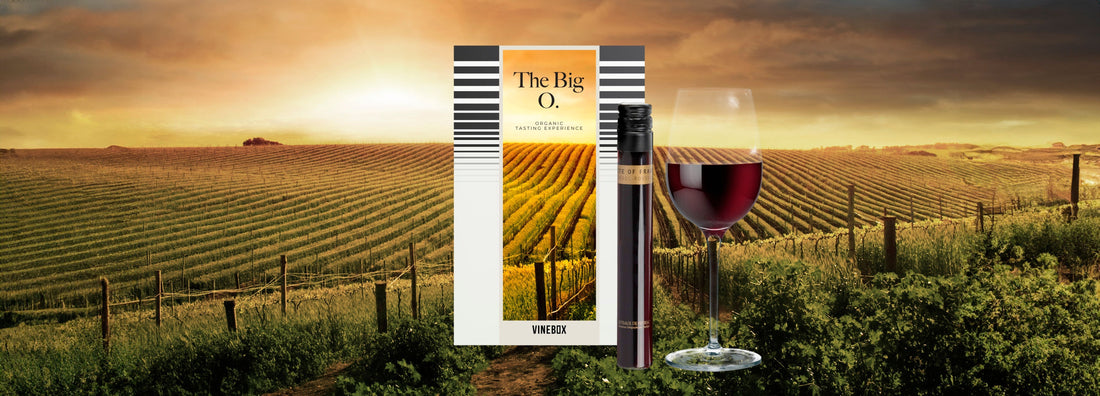The organic food movement has been booming over the past several years, yet organic grapes still make up only about 5% of vineyard acreage worldwide. Despite that, organic wine consumption in the U.S. has been steadily rising—nearly 10% per year.
So, what exactly is organic wine, is it really better for you, and where can you find the best? Let’s break it down.
(Hint: VINEBOX’s The Big O Box features 6 organic wines, all by the glass, to allow for sampling without having to commit to a full bottle.)
What Is Organic Wine?
At its simplest, organic wine is made from organically farmed grapes. Organic farming standards differ by country, but generally, it means no artificial chemical fertilizers, pesticides, fungicides, or herbicides.
But it doesn’t stop there. The winemaking process itself—fermentation—is also regulated for organic certification. Any added ingredients must be permitted and can’t exceed 5% of the total product.
In the U.S., organic wine certification means no added sulfites during fermentation. (Some naturally occurring sulfites are fine, but nothing can be added.) In Europe, sulfites must stay below 100 mg/L for red wines.
Organic winemaking also prohibits GMOs, coloring agents, concentrated wine additives like Mega Purple, and artificial flavorings like malic acid or caramel.
If a wine is made from organic grapes but doesn’t meet the certification standards during winemaking, it can still be labeled “Made with Organically Grown Grapes.” While still a good choice, true organic certification ensures both vineyard and cellar practices meet strict organic standards.
Is Organic Wine Healthier for You?
Organic farming + organic winemaking = organic wine. But what’s the real benefit?
By minimizing manipulation in the vineyard and the cellar, organic wines are often more natural and authentic, highlighting both the grape and the terroir—the unique characteristics of the land where they’re grown.
Organic wine also gives peace of mind: no chemical pesticides or additives are making their way into your glass.
Health-wise, organic grapes are generally healthier, with thicker skins and higher levels of beneficial antioxidants like polyphenols and resveratrol. Certified organic wines often have lower sugar and fewer artificial cellar additives, which can reduce the likelihood of headaches.
Is Organic Wine Better for the Environment?
Yes! Organic vineyards have tangible benefits for the planet. Soils enriched with compost retain water better, reducing the need for irrigation. Organic vines are often more resilient to droughts and temperature swings, protecting the ecosystem and surrounding flora and fauna.
Organic practices also limit chemical runoff, safeguarding local water supplies and promoting a healthier environment for vineyard workers. In Europe, organic certifications also include guidelines for ethical treatment of vineyard employees, from grape pickers to winemakers.
Where to Find the Best Organic Wines
Organic wines can be harder to find in traditional stores—U.S. producers account for less than 2% of certified organic wines. Spain, France, and Italy dominate the organic vineyard landscape, representing 73% of the world’s organic vineyards.
For an easy and curated way to explore organic wines, VINEBOX offers The Big O Box. This edition features 6 organic wines from France, Italy and Spain - representing nearly 75% of all organic vineyards in the world. Enjoy these selections from each, and experience why organic wine is most often the best expression of both the grape and also the terroir in which it is grown.
Whether you’re new to organic wine or a longtime fan, The Big O Box is the perfect way to sip sustainably and deliciously.

